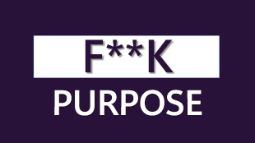A VERY unique Quest
Welcome to the inaugural webcast of Business for Humanity! Join us as we commence our collective journey to unravel the complexities of capitalism and embark on the quest for a better future of work.


quickstart
Welcome to the inaugural webcast of Business for Humanity! Join us as we commence our collective journey to unravel the complexities of capitalism and embark on the quest for a better future of work.
Inspired by the visionary research of Kees Klomp and the management bestseller "Thrive - Fundamentals for a New Economy" he co-wrote with Shinta Oosterwaal, we start to explore a number of bold alternatives to traditional and capitalistic paradigms. Prepare to be inspired by a whirlwind of ideas, from Doughnut Economics to Wellbeing Economics, Buddhist Economics, Ecological Economics, Community and Commons-based approaches, and including Degrowth and Feminist Economics. Building further on Kees's thoughts, we sketch out our initial inquiry framework and together with a hundred active participants, we warm up for the dialogues to come!
‘Thrive’ offers readers the fundamentals for a new economy that is rooted in the well-being of humanity and of our planet. This book is a must-read for anyone in search of economic perspectives that contribute to a flourishing world.

✿ About Kees Klomp
Kees Klomp is a Professor at the University of Windesheim and a leading researcher on alternatives to capitalism. Renowned as a consultant, social entrepreneur, and activist.
THE PARADIGM
the Webcast

KEY INSIGHTS FROM Our Practitioners' Forum
Here you can find the most memorable insights, comments, questions from you, the community. Simply select from the drop down menu on the right -->




meta inquiry for experts
In our upcoming editions, we will systematically develop a cohesive method to analyze, compare, and possibly integrate various economic paradigms that we delve into.
We'll kick off our exploration by framing our inquiries through the lens of a "critical realist" social ontology, focusing on three distinct social entities:
1. Ideals (culture and values)








DIVING DEEPER
FURTHER READINGS AND RESOURCES
ARTICLES FROM OUR BLOG

